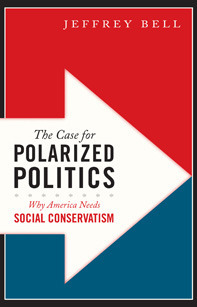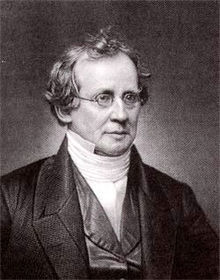Kevin DeYoung's Blog, page 145
March 30, 2012
Did the Apostle Paul Target Strategic Cities in His Mission Work?
 Kind of, but not really. That's the conclusion Eckhard Schnabel reaches in the book I mentioned yesterday, Paul the Missionary.
Kind of, but not really. That's the conclusion Eckhard Schnabel reaches in the book I mentioned yesterday, Paul the Missionary.
On the one hand, Schnabel agrees that "Paul certainly focused on cities rather than on villages" (282). Paul wanted to reach people wherever they lived and he wanted to reach as many as possible. And that meant going to the city. In particular, because he often started with Jews in a new region (and often started in the synagogue), Paul, by necessity, went to cities. That's where the Jews were outside of Judea. When you read through Acts you can see that Paul's missionary ministry focused on cities (286).
And yet, according to Schnabel, "it is a significant overstatement to say that Paul's passion was the planting of churches in metropolitan centers or in the 'strategic cities' of the Roman Empire" (281).
Paul's missionary work in Cilicia may have focused on Tarsus, but this is not certain. His ministry in Antioch was certainly a "metropolitan mission." When he moved to Cyprus, he did not go straight to Paphos, the capital of the province, but to cities on the eastern and southern coast of the island. When he reached Asia Minor, he bypassed the large cities in the province of Pamphylia to evangelize in the relatively small towns in southern Galatia, without attempting to reach Ancyra, the capital of the province of Galatia in the north. When he reached the province of Macedonia, he did not go straight to Thessalonica, the provincial capital, which could be reached by ship, but to Philippi. When he had to leave Thessalonica, he did not go east on the Via Egnatia to reach larger cities further west, nor did he travel straight to Corinth, the capital of the province of Achaia, but to Athens, a city with great history and reputation but with a more humble present role. (281-82)
Schnabel questions the notion that Paul focused on strategic metropolitan cities so that the gospel would naturally flow from there to other cities.
(1) Most Greek cities were organized as an independent polis governing their own affairs. The "radiation" effect from one city to the next would have been limited by this independence, not to mention the natural barriers (mountains, rivers, seas) that often delimited cities.
(2) Greek cities competed with each other for preeminence, thus limiting the instinct to copy religious developments in other cities.
(3) Greek cities did not normally share a common sense of community, except within each individual city. There was little provincial, regional, ethnic, or Empire wide identity.
(4) The characteristics of urban life in the Roman world made the reception of the gospel difficult. People were in the cities to seek status, not to be thought weak and foolish by accepting a scandalous gospel about a Jewish criminal. And although communication flowed better in the city, so did state-sponsored supervision. Faith did not come easily in the city and it was not expected that the gospel would automatically radiate around the region once a mission work had infiltrated a particular location.
None of this means that focusing on cities is a bad strategy for today's church. Undoubtedly, cities in our world are less independent that Greek city-states. What happens in New York very often doesn't stay in New York. There is nothing in Paul's methodology to point us away from cities. As was stated earlier, he ministered mostly in cities. They were hard places for the gospel then and hard places now. They needed good churches then; they need good churches now.
The point of this post–and Schnabel's point–is not to overstate Paul's strategy. For the most part he didn't have one. He went where people were, where people needed to hear the gospel, and where he had opportunity to share the gospel. That led him to cities, but also smaller towns and villages too.
The geographical scope of Paul's missionary work was not controlled by a "grand strategy" that helped him decide in which cities to begin a new missionary initiative. The evidence indicates that Paul moved to geographically adjacent areas that were open for missionary work. This is true for provinces, regions and cities. (287)
So where should we go to plant churches? The short answer is: everywhere. But beyond that we should simply look at where a church is needed and where we have an opportunity to go. This will lead God's people to many big, important cities. And to many other smaller "less important" towns and regions God cares about just as much.
March 29, 2012
Once More on Blog Comments
Reading blog comments is like walking through a barn. It can be fun to explore every now and then; there may be some food to chew on; once in awhile you can find a thing of beauty; and along the way you step in a lot of manure.
Blogs–especially the comment threads–are not known for bringing out the better angels of our natures. So let me make a few points (again).
1. Read my Ten Commandments for Commenting on Blogs.
2. Debate ideas. State your convictions strongly. But don't be nasty. Don't get personal. Develop a strong inclination to avoid sarcasm and sweeping generalizations.
3. Remember that with most people, you have no idea who is really behind the comments. Don't jump to conclusions about "what Christians or non-Christians are like" or "what men or women are like" or "what Calvinists or Arminians are like" from a few blog comments. Anyone out there can say they are something or someone they are not.
4. I think comments are still an important part of blogs. They provide for feedback and public discourse. But yes, they are often obnoxious, discouraging, and unedifying. If the comments make you mad or sad, don't read them. Stay away. Just read the post. That's what most of you probably do already.
5. Keeping watch over blog comments can be very time consuming. I don't read all the comments, or even most of the comments when a thread goes on and on. I have an assistant who tries to monitor the comments too, but she can't follow blog traffic all day either. Having said that, for the foreseeable future we will be quicker to remove nasty, long, hyper-linked, and irrelevant comments and quicker to shut down the thread. If your comment gets deleted for whatever reason, don't write another comment complaining about censorship. That will be deleted too. If you want to say something to the world, start your own blog and get people to come there.
Not trying to be a big meanie, just trying to make the blog a better experience for the vast majority of folks who are looking for good, edifying, thoughtful commentary.
March Book Briefs
[image error]Eckhard J. Schnabel, Paul the Missionary: Realities, Strategies and Methods (IVP Academic, 2008). I was sad for Trinity and very happy for my alma mater, Gordon-Conwell, when I heard that Schnabel was leaving Deerfield for South Hamilton. Schnabel is an excellent New Testament scholar and a leading missiologist. I greatly benefited from his two volumes on Early Christian Mission (2004) and again from this massive volume on Paul the missionary. The chapters are well organized with helpful summaries at the end, so don't let the size of this book scare you off. It works well as a reference volume. I wish every missionary, missions committee, and everyone interested in the missional discussion would read this book. At the very least, read the 18 page introduction where Schnabel defines mission, surveys the nature of missionary work in the early church, and outlines the goals and methods of the missionary enterprise. Highly recommended.
 Charles Wheelan, Naked Economics: Undressing the Dismal Science (W.W. Norton, 2010). This is a readable, informed, sometimes humorous look at economics. Wheelan knows his stuff, but has a passion to teach economics in a way normal people can understand. He succeeds in this pursuit. Though a defender of free trade, markets, and capitalism, Wheelan is less conservative than, say, Thomas Sowell or Milton Friedman. Wheelan, who once ran for Congress as a Democrat in Chicago, is pretty fair to both sides and fairly balanced on most controversial issues, but on issues of global warming, the role of government, and the work of the Fed he leans noticeably to the left. Whatever your political inclination, you'll be helped by this book and peeved every now and then.
Charles Wheelan, Naked Economics: Undressing the Dismal Science (W.W. Norton, 2010). This is a readable, informed, sometimes humorous look at economics. Wheelan knows his stuff, but has a passion to teach economics in a way normal people can understand. He succeeds in this pursuit. Though a defender of free trade, markets, and capitalism, Wheelan is less conservative than, say, Thomas Sowell or Milton Friedman. Wheelan, who once ran for Congress as a Democrat in Chicago, is pretty fair to both sides and fairly balanced on most controversial issues, but on issues of global warming, the role of government, and the work of the Fed he leans noticeably to the left. Whatever your political inclination, you'll be helped by this book and peeved every now and then.
 Jeffrey Bell, The Case for Polarized Politics: Why America Needs Social Conservatism (Encounter, 2012). Don't let the title throw you. This is not a rant or a pro-Republican screed. Bell, who was a policy adviser to Reagan, is certainly in favor of social conservatism. But he has written a book that is mush more history and analysis than diatribe and prescription. Bell argues that social conservatism is the true heir to the Declaration of Independence and also the reason for political polarization in the United States. The absence of comparable movements in Western Europe, Bell contends, is why the political climate across the pond it not polarized to nearly the same degree or along such strict lines. The book would have been stronger with a tighter editorial hand to keep the book moving in a single direction along a more logical path. But overall, the book was informative and worth reading, for those on the right and on the left, and especially for young Christians who think wrangling over social issues is a waste of time or downright embarrassing.
Jeffrey Bell, The Case for Polarized Politics: Why America Needs Social Conservatism (Encounter, 2012). Don't let the title throw you. This is not a rant or a pro-Republican screed. Bell, who was a policy adviser to Reagan, is certainly in favor of social conservatism. But he has written a book that is mush more history and analysis than diatribe and prescription. Bell argues that social conservatism is the true heir to the Declaration of Independence and also the reason for political polarization in the United States. The absence of comparable movements in Western Europe, Bell contends, is why the political climate across the pond it not polarized to nearly the same degree or along such strict lines. The book would have been stronger with a tighter editorial hand to keep the book moving in a single direction along a more logical path. But overall, the book was informative and worth reading, for those on the right and on the left, and especially for young Christians who think wrangling over social issues is a waste of time or downright embarrassing.
 Ralph Richard Banks, Marriage is for White People: How the African American Marriage Decline Affects Everyone (Dutton, 2011). I was expecting a book on the state of marriage among urban, mostly poor African-Americans. But the author's interest was with the decline of marriage among the burgeoning black middle class. According to Banks, the marriage decline among African-Americans cannot be traced to the legacy of slavery of African culture. He argues that there is a "man shortage" in the black community, because of incarceration, because of the success gap between women and men, and because of the interracial marriage gap. Interestingly, most of the book is an explanation for why black women rarely marry non-black men and why these women would help their race by marrying out of it more often. The gist: "We arrive at the paradox that is at the heart of the story I have told: If more black women married nonblack men, more black men and women might marry each other. If black women don't marry because they have too few options, and some black men because that have too many, then black women, by opening themselves to interracial marriage, could address both problems at once. For black women, interracial marriage doesn't abandon the race, it serves the race" (181). It's a provocative thesis, one you shouldn't judge too quickly (one way or another without reading the whole book). As a white married to a white woman I found the book most helpful in its description of the challenges of interracial marriage, especially for black women marrying white men.
Ralph Richard Banks, Marriage is for White People: How the African American Marriage Decline Affects Everyone (Dutton, 2011). I was expecting a book on the state of marriage among urban, mostly poor African-Americans. But the author's interest was with the decline of marriage among the burgeoning black middle class. According to Banks, the marriage decline among African-Americans cannot be traced to the legacy of slavery of African culture. He argues that there is a "man shortage" in the black community, because of incarceration, because of the success gap between women and men, and because of the interracial marriage gap. Interestingly, most of the book is an explanation for why black women rarely marry non-black men and why these women would help their race by marrying out of it more often. The gist: "We arrive at the paradox that is at the heart of the story I have told: If more black women married nonblack men, more black men and women might marry each other. If black women don't marry because they have too few options, and some black men because that have too many, then black women, by opening themselves to interracial marriage, could address both problems at once. For black women, interracial marriage doesn't abandon the race, it serves the race" (181). It's a provocative thesis, one you shouldn't judge too quickly (one way or another without reading the whole book). As a white married to a white woman I found the book most helpful in its description of the challenges of interracial marriage, especially for black women marrying white men.
 Ted Kluck and Dallas Jahncke, Dallas and the Spitfire: An Old Car, an Ex-Con, and an Unlikely Friendship (Bethany House, 2012). Another well written, engaging book from Ted. Here's my blurb: "It's not every day that you read a really good Christian book about sex, drugs, and rock and roll. But this is not your ordinary Christian book. Ted is a terrific writer, and Dallas has a tremendous story to share. Every page manages to be realistic and hopeful at the same time. This is a relentlessly honest book with a redemptive edge."
Ted Kluck and Dallas Jahncke, Dallas and the Spitfire: An Old Car, an Ex-Con, and an Unlikely Friendship (Bethany House, 2012). Another well written, engaging book from Ted. Here's my blurb: "It's not every day that you read a really good Christian book about sex, drugs, and rock and roll. But this is not your ordinary Christian book. Ted is a terrific writer, and Dallas has a tremendous story to share. Every page manages to be realistic and hopeful at the same time. This is a relentlessly honest book with a redemptive edge."
March 28, 2012
Does Calvinism Make People Jerks?
[image error]No. But Calvinism is a useful tool for jerky people to act like jerks.
Reformed folks have been stereotyped as the cranky Christians on the block. I'm not interested in debating whether the stereotype is deserved or not. Sometimes it is; sometimes it isn't. Sometimes we are the meanies because we have the audacity to believe what we believe and the temerity to say that others are wrong. No problem there. That's Christianity (not all of it, but part of it).
And yet, who among us has not met the quintessential Calvinist curmudgeon? How many of us have been that curmudgeon? Some of you still are! We might as well admit it: Calvinists can be jerks.
But the problem is owing to the jerks, not to the Calvinism. I've seen feminist jerks and social justice jerks, libertarian jerks and liberal jerks, hipster jerks and "you Calvinists are Taliban fundamentalists" jerks. The problem is not predestination. It's pride.
We are all susceptible. And those most obnoxious with their pride are the ones who have found a suitable vehicle for their vanity.
Calvinism is a way of thinking. It's a worldview. It's a doctrinal system. It demands thought and intellectual rigor. It must be learned. It is a minority position in America and in the American church. None of this make the Calvinist a nasty person. But if you have a predilection toward nastiness, then developing an intellectually sophisticated set of beliefs that you understand and most people do not will help you immensely in your feelings of superiority and expressions of condescension. The same can be true of the feminist who knows the whole world is a chauvinist plot to demean women or of the libertarian who has come to see the inherent malevolence of the Fed or of the artist who sneers at consumerism and pop culture or of the enlightened middle-of-the-roader who disdains those benighted backward people who can't seem to get with the kingdom way of living.
Some people hate Calvinism because they hate the truth. That's their problem. But some hate the ugliness they see in Calvinists. That's our problem. It happens to be the problem with a lot of people who have a cause, hold to a belief, or think they see something others don't see.
But if the Calvinist cause is Christ, the beliefs we hold have been revealed to us, and what we see is grace upon grace all for the glory of God, then we of all people ought to be meek instead of mean, humble instead of haughty, and joyous instead of jerky.
March 27, 2012
Reflections After Being on the Road
[image error]
Along with a seminary student from our church, I was out of the country for 17 days speaking and visiting friends in Dubai and Turkey. I'm glad I went. Parts of the trip were challenging (e.g., food, travel, illness), but the people were wonderful and the opportunities to understand Christian life overseas was well worth the journey. Thanks to Jason Helopoulos for guest blogging. Thanks to any dear saints out there who prayed for our trip. Thanks to my church family and family family who sent me off. I hope it's okay that I came back.
I intentionally refrained from blogging while I was gone, both because I didn't want to make my blog a three week travel journal and because I wanted the freedom to be "fully present" in new places far away from home. But now that I'm back, I would be remiss if I didn't share a few reflections from my time on the road.
Here are ten thoughts, in no particular order of importance or spiritual depth.
1. The importance of the local church cannot be overstated. Good churches--the kind with good preaching, membership, discipline, thoughtful worship, capable leadership, strong elders, robust doctrine, warm fellowship, gospel-centered passion--are needed everywhere. And possible everywhere. Wherever Christians are doing ministry they should put the church at the center of their strategy and energy. Don't think good churches can't be insisted on overseas. Don't think God can't build them up wherever he wants. And don't expect ministry to flourish without them.
2. There is a need for strong international churches. In our globalized world, most major cities will have expatriates from all over the world. Many (most?) of these expats will speak English. Some of them will be Christian. If anyone reading this blog is thinking about pastoral ministry, think for a few minutes about the possibility of serving an English speaking congregation somewhere in the world. Talk to John Folmar at the United Christian Church of Dubai about the opportunities such a ministry can afford. There are churches all over the world that could benefit from humble English speakers eager to do pastoral ministry in these unique, multicultural, gospel hungry environments.
3. Why don't I evangelize more? Why aren't the members of my church sharing their faith more relentlessly and consistently? I was challenged to meet so many believers in hard places who make evangelism a way of life. If they can do it through cultural, religious, ethnic, and sometimes language barriers, why don't we do it more often here in the States? I engaged in more personal evangelism in 17 days overseas than I've done all year back home.
4. If you want to serve the Lord overseas it helps to be flexible, outgoing, and somewhat adventurous. It's an absolute must to be humble, teachable, prayerful, and patient.
5. Blogging matters, but it was nice to be away from it for three weeks. I believe in blogging. If I didn't I wouldn't be back at it this week. I met many Christians overseas--some Americans and some not--who follow TGC and other prominent Christian blogs. The impact of blogging is vast. And yet, it was freeing to read something about Kony 2012 or Rush Limbaugh or Bill Maher or Travyon Martin and think, "I don't need to say anything about that."
6. The Insider Movement is a bad idea. Admittedly, my evidence in this paragraph is anecdotal, but I only talked to one Christian who was excited about the Insider Movement, and he was an American. One Turkish pastor passionately explained to me--and I saw this firsthand many times--that Muslims are convinced Christians changed the New Testament. This is Apologetics 101 for Muslims. When they find out (and it isn't hard to notice) that a new translation leaves out "Son of God" they aren't duped. They only feel confirmed in their belief that Christians change the Bible to trick Muslims. Likewise, an Indian Christian lamented that the Insider Movements tend to be exported by Western Christians who don't have a theology of suffering.
7. If you want to have any real impact in another country, you have to learn the language, settle down, and stay for as long as you can.
8. As much as we lament cultural Christianity in America, it's still better than cultural Islam. The number of Christian churches, resources, books, and resources in this country, not to mention the cultural legacy of Christianity in the States, is staggering. There are fewer leaps necessary to become a Christian and more opportunities to hear the gospel here. We should be thankful.
9. Judging from my experience and from talking with those who know much more than I do, it's safe to say that most Muslims are very nice people, most are happy to talk about religion, most are nominal, and most have profound misconceptions about Christianity. They need to hear the gospel. Most will listen. A few will believe.
10. Dorothy was right: there's no place like home.
March 26, 2012
Monday Morning Humor
March 24, 2012
Reading the Puritans
 Guest Blogger: Jason Helopoulos
Guest Blogger: Jason Helopoulos
The Puritans are worth reading. Many shy from reading these saints of the 16th and 17th centuries, because they assume that their writing will be too rigid, formal, and opaque. I know that it seems counterintuitive, but some of the most accessible works I have ever read are by Puritans (at least books worth reading). When directing people to the Puritans for the first time, I encourage them to read Thomas Watson. He is the "door to the Puritans" in my limited opinion. His ability to turn a phrase and paint pictures in the mind is second to none. As you enjoy Watson, he may just encourage you to pick up another Puritan work and read. And then a whole new world of writings is open to you for the betterment of your soul.
Banner of Truth's Puritan Paperbacks provide an inexpensive option for reading broadly in the Puritans. Here are just a few quotes from one of Watson's works, The Godly Man's Picture, to whet your appetite:
Godliness consists in an exact harmony between holy principles and practices. (p.7)
Godliness is a spiritual queen, and whoever marries her is sure of a large dowry with her. (p.7)
When the Lord pardons a sinner, he does not pay a debt, but gives a legacy. (p.9)
When there is nothing in the soul but clouds of sorrow, and now God brings a pardon—which is a setting up of a rainbow in the cloud, to tell the sinner that the flood of wrath shall not overflow him—oh, what joy there is at the sight of this rainbow! The soul before was steeped in tears now melts in love to God (Luke 7:38, 47). (p. 10)
Guilt clips the wings of prayer so that it cannot fly to the throne of grace, but forgiveness breeds confidence. He who has his pardon may look his prince in the face with comfort. (P.11)
The moralist's religion is all in the leaf; it consists only in externals, but godliness is a holy sap which is rooted in the soul. (p.12)
As a jewel to the ring, so is piety to the soul. (p.13)
The Scripture reveals Christ to us, but the Spirit reveals Christ in us (Galatians 1:16). (p.27)
A godly man's heart is the library to hold the Word of God. (P.61)
The Word is the jewel; the heart is the cabinet where it must be locked up. Many hide the Word in their memory, but not in their heart. (p.62)
Christ is the fountain of living water, the Word is the golden pipe through which it runs. (p.64)
"Many love the Word preached only for its eloquence and notion. They come to a sermon as to a music lecture (Ezekiel 33:31,32) or as to a garden to pick flowers, but not to have their lusts subdued or their hearts bettered. They are like a foolish woman who paints her face but neglects her health." (p.66)
"God's love is a box of precious ointment, and it is only the Spirit who can break this box open, and fill us with its sweet perfume." (P.72)
"For as the body without the soul is dead, so is the soul without Christ." (p.192)
March 23, 2012
Head and Heart
 Guest Blogger: Jason Helopoulos
Guest Blogger: Jason Helopoulos
We always want to retain both the cognitive and affective elements of our Christian faith. For truth through the intellect informs and stirs the affections and the affections then in turn enliven the mind. The objective and subjective, head and heart, intellect and emotions must be maintained for a true and vibrant Christian faith. Many in the history of the church could be lifted up as models for us in this regard. And one of the best is Charles Hodge. He is a paragon of faithfulness in intellect and affection.
Andrew Hoffecker in his wonderful new biography, Charles Hodge: The Pride of Princeton, offers these thoughts:
"By combining the intellect's apprehension of the doctrinal truths of the faith with the heart's affective response to truth, Hodge effectively demonstrates the correlation between Christians' cognitive and emotive experiences. Genuine faith consists of intellectual assent to Christian truths as well as affective or intuitive feeling. Without either an objective content or an appropriate emotive response, Christian faith would not be genuine. Christian faith could therefore be correctly characterized as both propositional in nature and—as in the title of his book—a way of life. If either the objective or subjective element were eliminated, faith would not be genuinely Christian in nature. For Hodge, the cognitive and affective elements of the Christian faith are necessary, complementary, and never in contradiction. (p.226)
"Not only are intellect and feelings compatible, but Hodge asserted that intellect takes precedence over feelings and also manifests the truth in that it 'enlarges and improves that of the feelings, and is also enlarged and improved by it.' He illustrates this point by the colorful phrase that 'the heart is famished by an idle intellect.' He continued, 'When fed by an enquiring mind, it is enlivened, and reaches out of an expanded faith.'" (p.228-229)
March 22, 2012
Christian Husband's Only Option: Love Your Wife
Guest Blogger: Jason Helopoulos

Christian husbands, you don't have the freedom to "fall out of love" with your wife. There are always contributing factors, but in the end it is this claim that "we fell out of love," "the feeling isn't there," "the spark is gone," or something similar that is often the stated conclusion for why a couple is divorcing. And more often than not (in my experience) this comes from the husband. Now, let me be very clear, this is not always the case. And there are many marriages which end in divorce for biblical reasons. This is not a commentary or post about divorce. The point I want to make sure we all understand is the one that began this post: the Christian husband does not have the freedom to "fall out of love" with his wife. This just isn't an option.
In Ephesians 5, the Apostle Paul tells husbands to love their wives six times in eight verses. You would almost think Paul is trying to make a point! The evangelical world has twisted itself in knots about the verses just prior to Paul's admonition to husbands in which the wife's responsibility to submit to her husband is commanded. And yet Paul spends only three limited verses on that subject, but devotes fully nine verses to husbands loving their wives. We spend too little time thinking, teaching, and encouraging Christian husbands to love their wives.
Every Christian husband knows that in Ephesians 5 the husband is exhorted to love his wife as Christ loved the Church. What many of us need to hear, especially in Western modern culture, is that an aspect of Christ's love for the Church is that it endures. Christian husbands must take note that Christ's love for the Church is not momentary or even for a season. It is a love that continues. It is steadfast and true. And these qualities are to mark a husband's love for his wife.
There is no other option. In verses 28 and 33, the Apostle makes this point strongly. He says husbands "must" love their wives. For the Christian husband, loving his wife is behind door number one, number two, and number three. Whichever way he turns in his relationship, he knows that this is to be his manner, mindset, and pursuit. He has no freedom to do anything else.
And what is the primary reason for this? Well, we often make the mistake of talking about Christ's relationship with the Church as comparable to our marriage relationships, but that is not what Paul says in Ephesians 5. He says that Christ's relationship with the Church is the substance and our marriage relationships are just a reflection of that. Therefore, our marriages either rightly or poorly reflect the relationship between Christ and His Church. This means that for the Christian husband, he knows that he cannot and will not fall out of love with his wife, because that would speak falsely about His Savior. He knows that within his marriage, there is an even higher calling in loving his wife, and that is the glory of God.
Therefore, the Christian husband gazes upon his wife and knows that no matter how difficult, how trying, or what temptations are offered that he must persevere in loving her. Why? Because the Christian man, who has been bought with a price, is a bondservant of Christ Jesus, and a son of God, wants above all else to give glory to his God. So what does a Christian husband do when he is tempted with giving in to "falling out of love" or something similar? He is to remind himself that he is a member of the bride of Christ. And so Christ's love for the Church is not only the example, but the means by which he must and will continue to love his own wife until death do they part to the glory of God. He knows there is no other option for him under the sun.
March 21, 2012
Big Prayers
 Guest Blogger: Jason Helopoulos
Guest Blogger: Jason Helopoulos
Our corporate and private prayer times are often what I have heard termed, "organ recitals." We pray for Aunt Lizzy's heart, the next door neighbor's failing kidneys, etc. These are necessary and good prayers. I know that I am thankful for people who specifically pray for me and my loved ones. However, I was reflecting lately upon some of the great prayers of Scripture. I think of Jesus' prayer in John 17. It is a prayer that expects much and is grand in scope; almost to the point that we want to dismiss it as poetic language.
If we don't do that with Jesus' prayer in John 17, we tend to with Paul's prayer in Ephesians 3.. Paul says that he prays for the Ephesian church that they "being rooted and grounded in love, may have strength to comprehend with all the saints what is the breadth and length and height and depth, and to know the love of Christ that surpasses knowledge, that you may be filled with the fullness of God" (Ephesians 3:17-19).
It is grand prayer. In the Greek, these four dimensions are governed by one article and are regarded as a unity. They are a totality, which is meant to evoke the immensity of the love of Christ. What Paul is saying is that all the expanse of creation cannot contain this love. If Christ's love was measurable its height would exceed the heavens, its depth would penetrate the deepest seas, its breadth would span the universe, its length would be unending.
If that wasn't enough, Paul takes it one step further. He says this love is so infinite that it "surpasses knowledge." It can't even be quantified by our minds. And yet he wants them to "know" it. He is in essence praying that they know something which seems unreachable. It is a "big prayer."
Is Paul just being poetic? Does he truly believe that this love that surpasses knowledge can be known by the Ephesians? Notice what follows Paul's prayer: "Now to him who is able to do far more abundantly than all that we ask or think, according to the power at work within us, to him be glory in the church and in Christ Jesus throughout all generations, forever and ever. Amen" (Ephesians 3:20-21). Paul is saying, "I can pray this prayer that you would know a love that surpasses knowledge, because we have a God who is able to do even more than we can think or ask."
Pray the incredibly important particular prayers for people and the Kingdom. Pray for healed bodies, restful nights, and even parking places. But also pray the big prayers; these prayers which seem so general and grand in scope that they stand to be accused of being poetic "pie in the sky" mutterings. Though they may be grand, they are not just poetic "pie in the sky" mutterings, because we have a God who is able to do "far more abundantly than all that we ask or think" (Ephesians 3:20).



